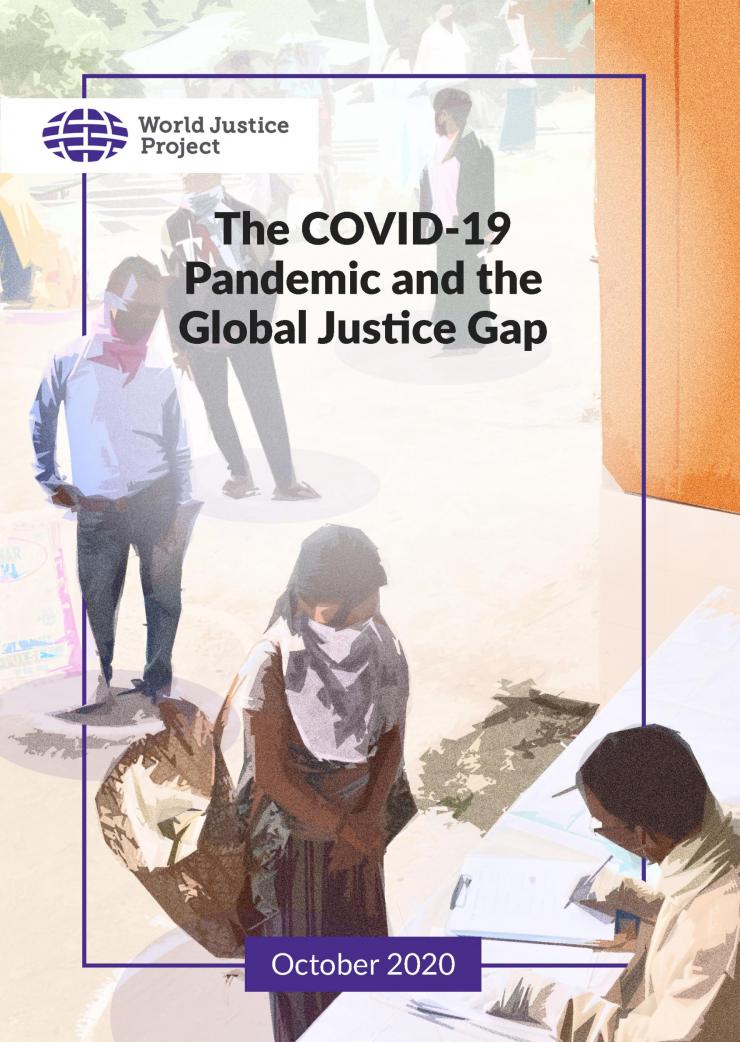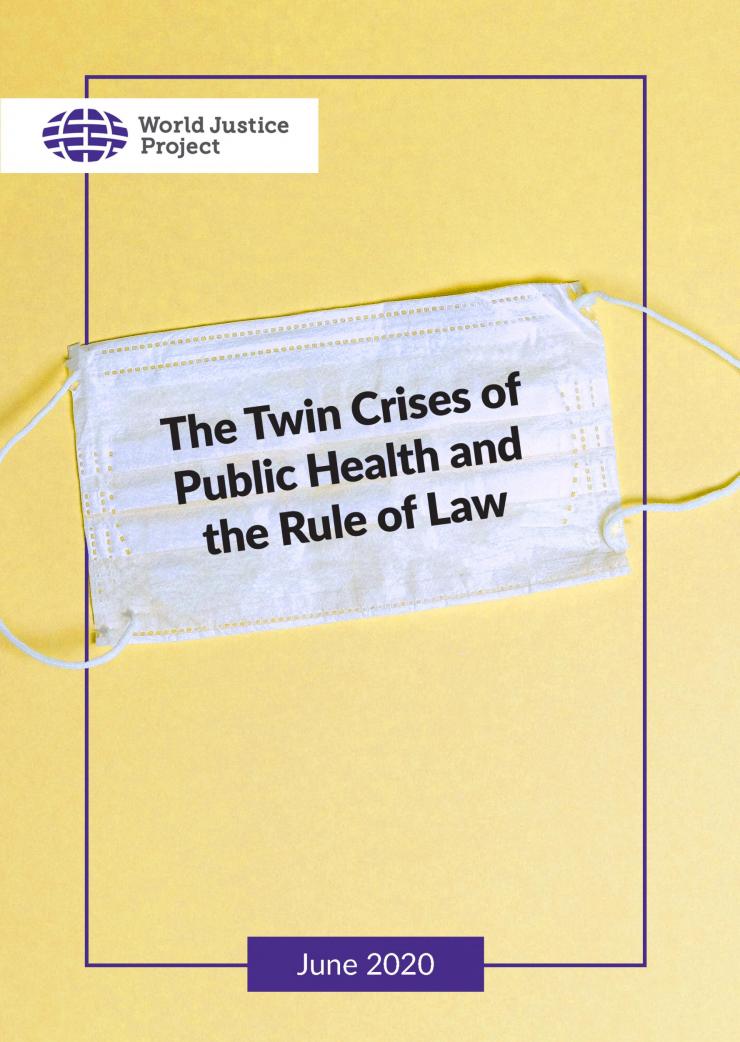

When the COVID-19 virus began crossing borders in early 2020, it did so amidst a continuing, global downturn in the rule of law—as reported in our latest WJP Rule of Law Index. Unfortunately, one crisis holds the potential to feed the other, with gaps in the rule of law threatening effective public health responses, and the pandemic creating a political, social, and economic context that puts further pressure on good governance.
Amidst the turmoil, identifying promising approaches to these challenges can help guide an effective recovery process and assist in building back better rule-of-law-based societies. That is why the World Justice Project is focusing knowledge- and awareness-building activities across four issue areas where the public health crisis and rule of law intersect most urgently: corruption, accountable governance, fundamental rights, and access to justice for all.
A just-completed series of policy briefs published over the past four months highlights emerging concerns in each of these areas. We encourage you to download the briefs, previewed below, and share them with your networks. In addition, you can help us promote the World Justice Challenge 2021, our global competition to identify, recognize, and promote good practices and high-impact projects and policies that protect and advance areas of the rule of law most affected by the COVID-19 pandemic.
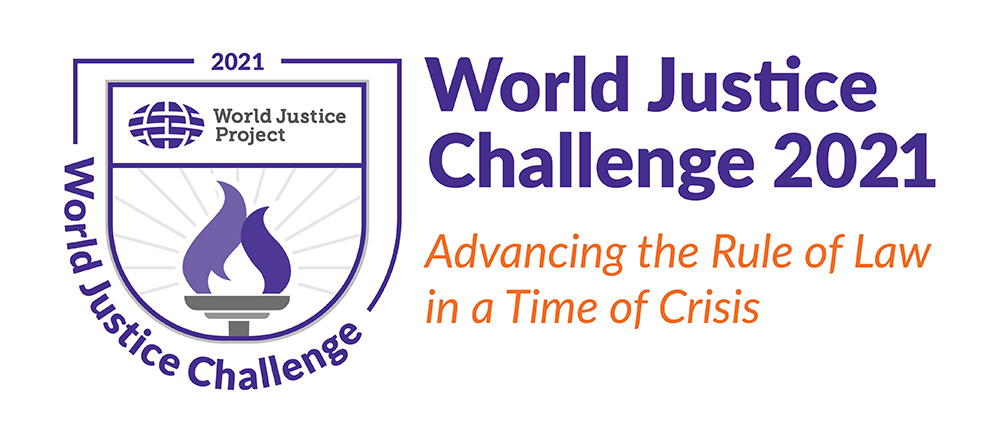
Six projects that show demonstrable results and promising prospects for future progress, replication, and scaling will receive cash awards ($20,000 USD) and global profile.

Corruption and the COVID-19 Pandemic
The COVID-19 pandemic gives rise to very significant risks of corruption. Massive resources mobilized to respond to the health and economic crises create opportunities for corruption, while many corruption prevention and enforcement mechanisms are suspended due to the emergency. This corruption risk is a rule of law problem in itself. It also compromises the pandemic response, undermining much-needed trust in public institutions, squandering supplies and resources, and impeding their flow to those in need.
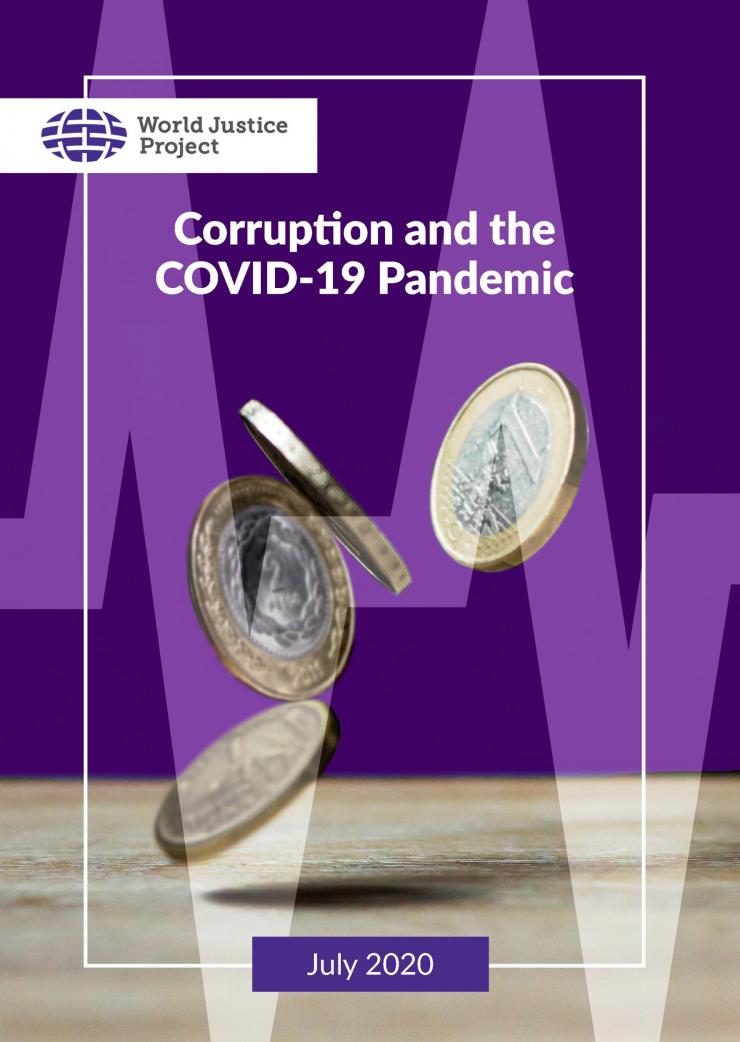
Corruption and the COVID-19 Pandemic
. . . AND JOIN OUR UPCOMING WEBINAR: Please note that on October 28, WJP will be holding a World Justice Challenge 2021 webinar event focused on key anti-corruption and open government problems raised and exacerbated by the pandemic. Panelists will discuss recommendations for actions needed to address these challenges, support an effective recovery process, and build back better rule-of-law-based societies.
Accountable Governance and the COVID-19 Pandemic
Responding to a public health emergency such as COVID-19 requires effective government institutions capable of delivering both preventive and emergency medical care while also maintaining other essential public services. Regardless of the exigencies of the crisis, it must carry out these basic functions in accordance with the rule of law—open to the public, contestable in the courts and through elections governed by law, with the consent of the legislature, and reviewed by audit and other oversight bodies.
This policy brief examines how the COVID-19 crisis presents an enormous stress test for accountable governance—upon which an effective public health response depends—and what can be done about it.
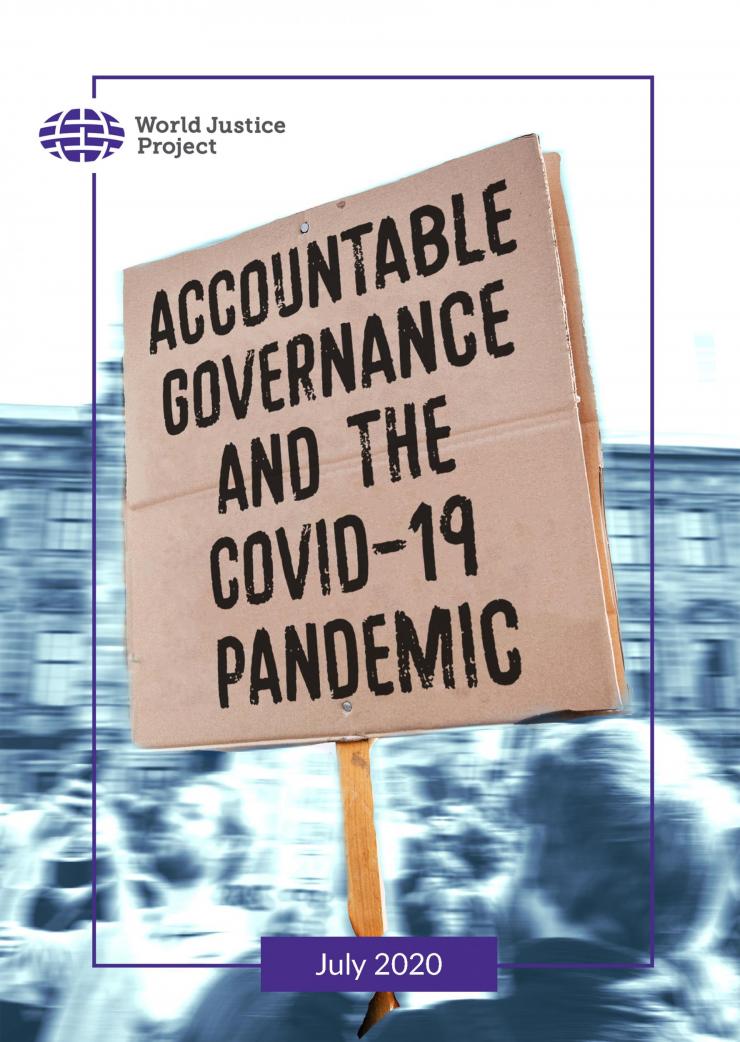
Accountable Governance and the COVID-19 Pandemic
Fundamental Rights and the COVID-19 Pandemic
The COVID-19 pandemic is intensifying pressure across a wide range of fundamental rights, a key pillar of the rule of law. This comes at a time when, according to the World Justice Project Rule of Law Index, more countries have declined in their fundamental rights score than any other rule of law factor both over the last year and the last five years. This policy brief provides concrete country examples and puts forth recommendations for protecting fundamental rights—now and for the long term.
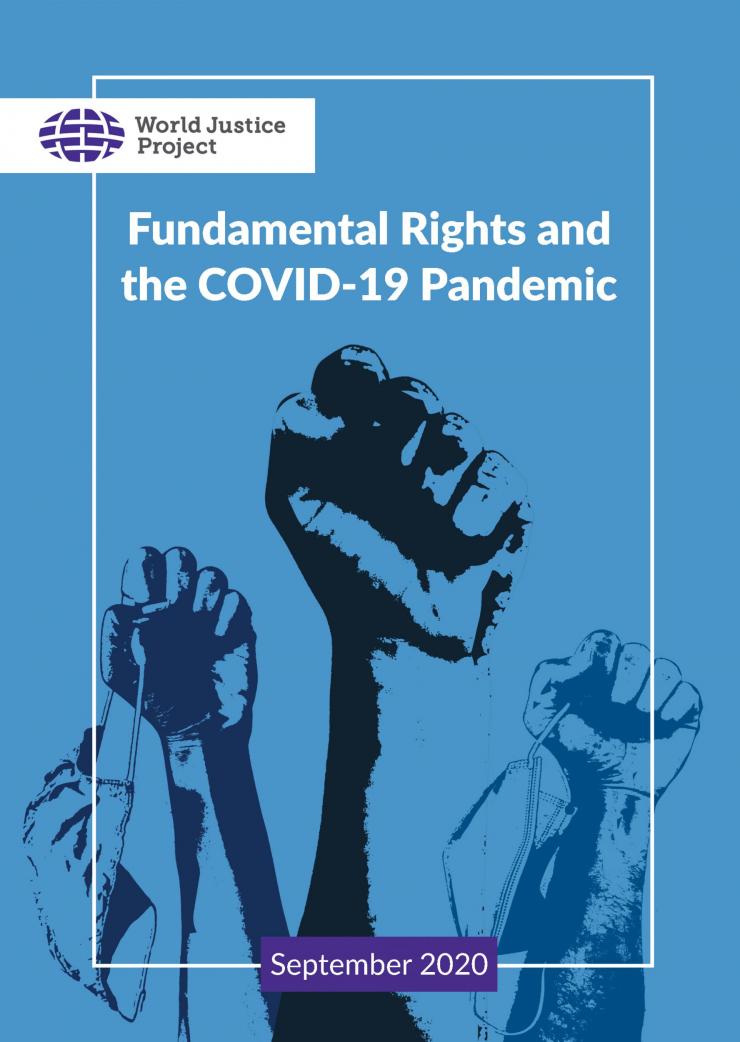
Fundamental Rights and the COVID-19 Pandemic
The COVID-19 Pandemic and the Global Justice Gap
On the eve of what was dubbed "the decade of action" to reach the Sustainable Development Goals (SDGs) by 2030, the COVID-19 pandemic has both set the SDG agenda back and driven home just how fundamental justice is to achieving all of the other goals. The crisis has laid bare significant inequities, taking its greatest toll on those who have been traditionally excluded and plunging more people into this plight.
This policy brief explores various dimensions of this
"justice gap" and how the pandemic is affecting those who fall in it. The pandemic has simultaneously created new challenges for reaching "justice for all" by 2030, and underscored the importance of doing so. As this brief highlights, promising strategies are emerging for building back better by closing the justice gap.
